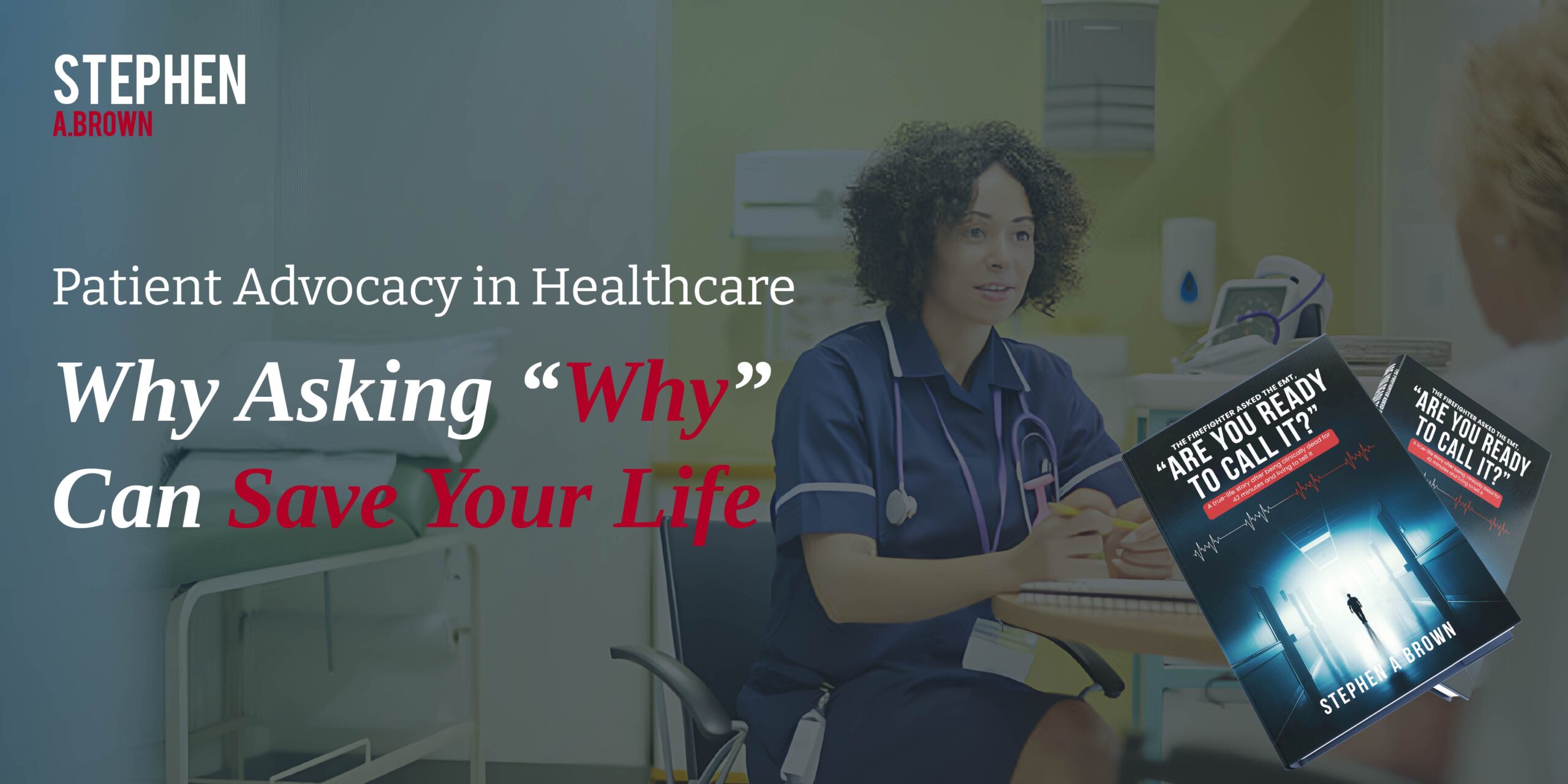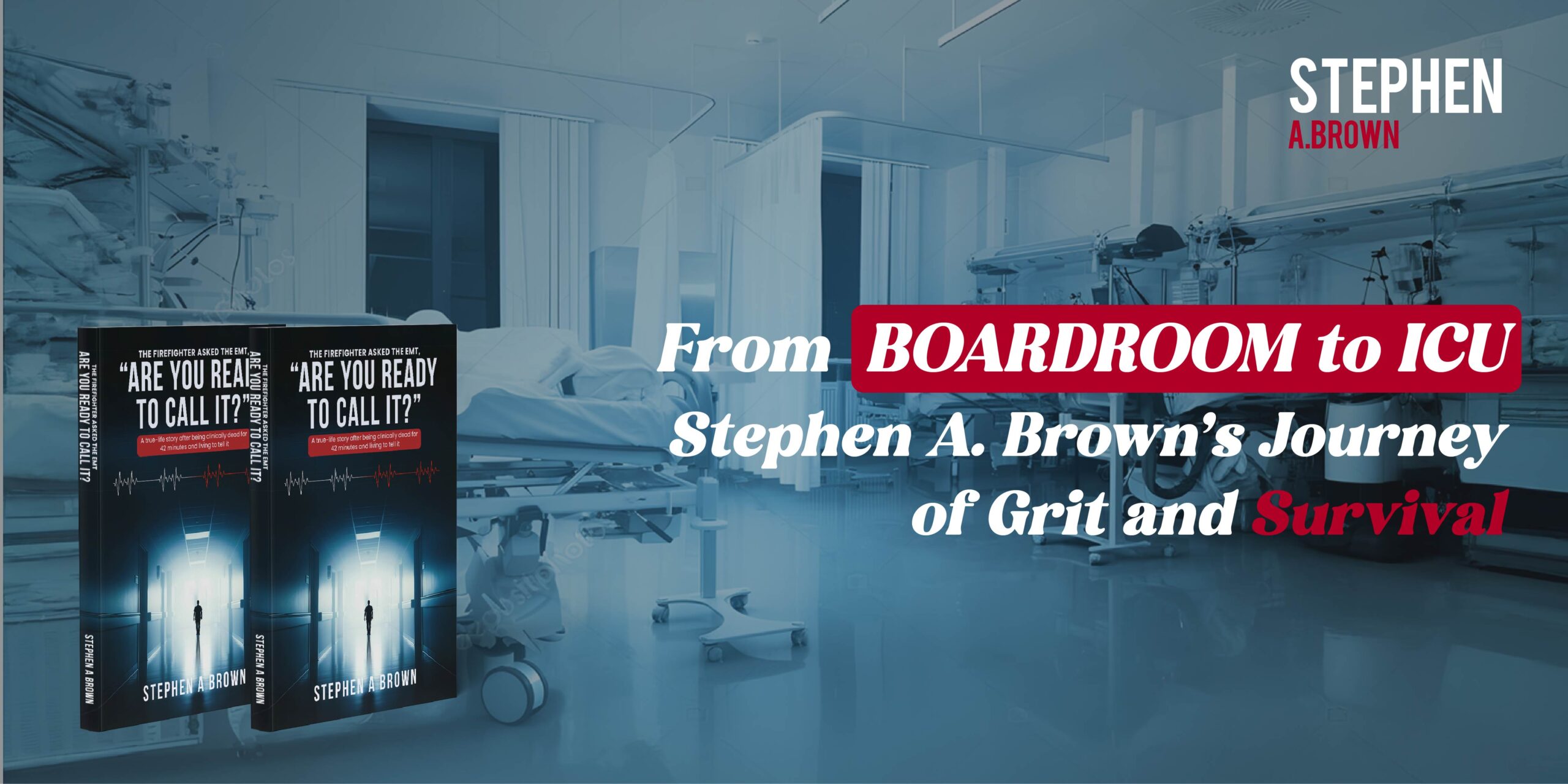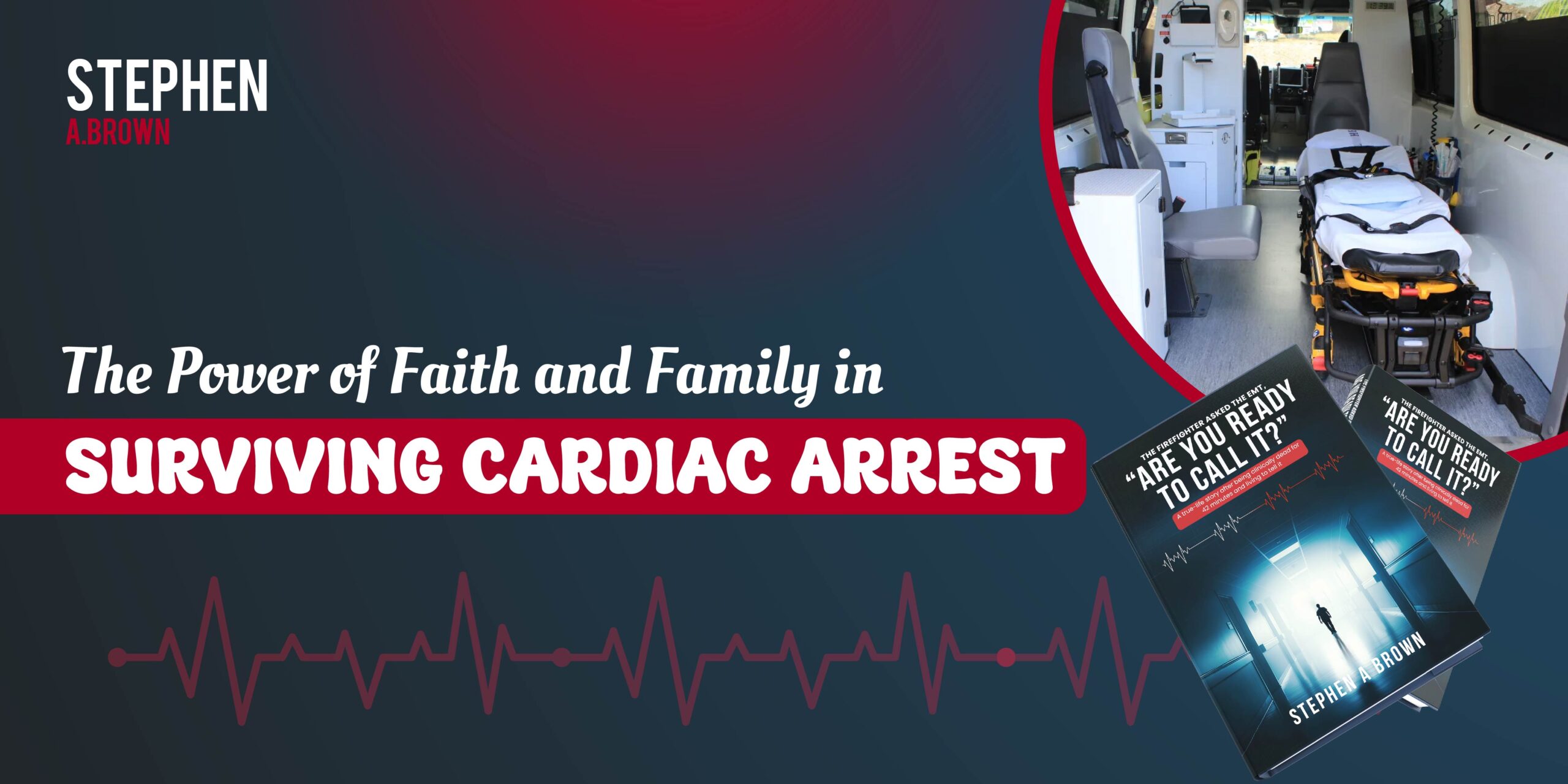When you walk into a hospital or clinic, you hand over a kind of trust. You trust the nurse to notice your pain, the doctor to choose the right test, and the system to keep you safe. But as Stephen A. Brown’s story reminds us, trust alone is not enough. Patient advocacy in healthcare means standing beside that trust with courage. It means asking the simplest of questions: “Why?”
A Story That Stops You in Your Tracks
Stephen’s story is not easy to forget. He was gone, flatlined, for 42 minutes. Three times, his heart stopped. Yet he lived to tell it in Are You Ready to Call It?
What saved him wasn’t only the machines or the skill of his doctors. It was also the voices that refused to stay quiet. Even when it seemed that everything was over, his loved ones continued to ask questions. When it matters most, patient advocacy in healthcare looks like this.
The Danger of Quiet Acceptance
Most mistakes in medicine don’t come from a lack of knowledge. They come from silence. A chart left unchecked. A symptom brushed aside. A pill given in the wrong dose.
Too often, patients say nothing because they don’t want to seem difficult. But one gentle question, “Why this treatment?” or “Why not another option?” can shift the whole story. That one word can catch a mistake before it grows into something dangerous.
Turning into Your Own Advocate
Patient advocacy in healthcare doesn’t mean arguing with every doctor. It means showing up prepared. It means knowing that your voice matters as much as the prescription in your hand.
Simple steps help:
- Write your questions before the appointment.
- Bring someone who can listen with you.
- Speak up if your worry hasn’t been heard.
- Remember your patient rights: the right to understand, the right to a second opinion, the right to say “no.”
Each of these is an act of medical self-advocacy. Small, but powerful.
Why Doctors Respect “Why”
Many patients fear they’ll insult their doctor by asking too much. The truth? Most good doctors welcome questions. They know that an engaged patient makes fewer mistakes, remembers instructions better, and feels safer.
Stephen’s survival wasn’t only science. It was also partnership. His care team had skill, but his advocates gave persistence. Together, they carried him through the impossible.
Breaking the Fear of Speaking Up
If you’ve ever sat in an exam room with your questions caught in your throat, you’re not alone. Speaking up feels heavy. Especially for older patients, silence can feel like respect.
But silence can also be a risk. Respectful questions are not a burden. They are lifelines. Instead of saying, “I don’t agree,” you can say, “Can you help me understand why this is the best choice?” That word, why, opens doors without closing trust.
Rights That Come Alive When You Use Them
Every hospital has a list of patient rights. Privacy. Consent. The right to information. But they stay like ink on paper unless you breathe life into them.
Patient advocacy in healthcare is about using those rights. Asking to see your test results. Requesting a second opinion. Waiting until you truly understand before you agree. These are not signs of doubt. They are signs of wisdom.
Even in Urgency, Ask
In emergencies, it feels wrong to slow things down. But even then, “why” has a place.
- Why this scan instead of another?
- Why this surgery now, and not later?
- Why this dose, and not less?
The answers might confirm the plan. Or they might reveal something missed. Either way, you gain clarity. And sometimes, you gain your life.
The Ripple Effect
Your choice to ask questions does more than protect you. It shapes your family, your children, your community. A child who hears a parent say, “Doctor, can you explain why?” learns that health is something you take part in, not something handed to you.
Stephen A. Brown’s story carries that ripple. His survival is more than personal. It is a lesson for all of us.
The Last Word
Patient advocacy in healthcare is not complicated. It’s not loud. It is a steady, calm courage to ask “why.” Doctors are human. Systems are imperfect. Mistakes happen. Your questions bridge the gap between error and safety.
Stephen’s 42 minutes without a pulse remind us how thin the line can be. His return shows the power of refusing silence. So the next time you hold a prescription or hear a rushed explanation, pause. Breathe. And ask, softly but firmly, “Why?” That small word might be the most powerful medicine you ever use.



